Positive Climate for Learning and Wellbeing
Ms Mayus, Ms McLean, Mr Yung, Mr Greaves and Ms Price

Positive Climate for Learning and Wellbeing
Ms Mayus, Ms McLean, Mr Yung, Mr Greaves and Ms Price
Supporting Positive Behaviour at CESC – Thank You for Your Feedback!
We would like to extend a heartfelt thank you to our school community for your continued support and the thoughtful feedback you've provided as we introduce School-Wide Positive Behaviour Support (SWPBS) at Cranbourne East Secondary College.
What is SWPBS?
SWPBS is a whole-school framework that helps us create a safe, positive, and consistent learning environment. It is built on the idea that positive behaviour, like academic learning, can and should be taught explicitly. Through SWPBS, we aim to:
Over the past term, our SWPBS team has worked with students, staff and families to co-design our Behaviour Matrix, behaviour definitions, and a consistent approach to logical consequences. Your input has helped ensure these tools reflect the values and needs of our community.
What’s next?
Beginning in Term 3, students will start to learn more about our behaviour expectations through focused lessons, assemblies and class discussions. These lessons will help build a shared understanding of what positive behaviour looks like across different settings, such as classrooms, hallways, the yard, and online.
Looking ahead, we are working toward a formal school-wide roll out of SWPBS during the Step Up Program in Term 4. This will include introducing the framework to all students, refreshing expectations for the new school year, and embedding positive behaviour practices into our daily routines.
We are excited about the positive impact SWPBS will have on student learning, wellbeing, and school culture—and we are grateful for your partnership as we continue this important work.
Thank you once again for being an essential part of our journey.
Term 2 has been a busy and rewarding one! The BFF Lunchtime Club continues to be a positive and inclusive space for our female students. We’ve also had a range of valuable programs and initiatives running throughout the term. Headspace facilitated a small group Wellness Program, and the City of Casey 360 Bus visited our school, providing important support and engagement opportunities. Students also took part in the Strength Within Emotional Regulation Workshops and Year 11 VM students attended informative Body Image presentations.
Our Koorie students enjoyed both Art and Dance Workshops, as well as an excursion to Cranbourne West to connect with other Koorie students in the area — a fantastic opportunity for cultural connection and community building.
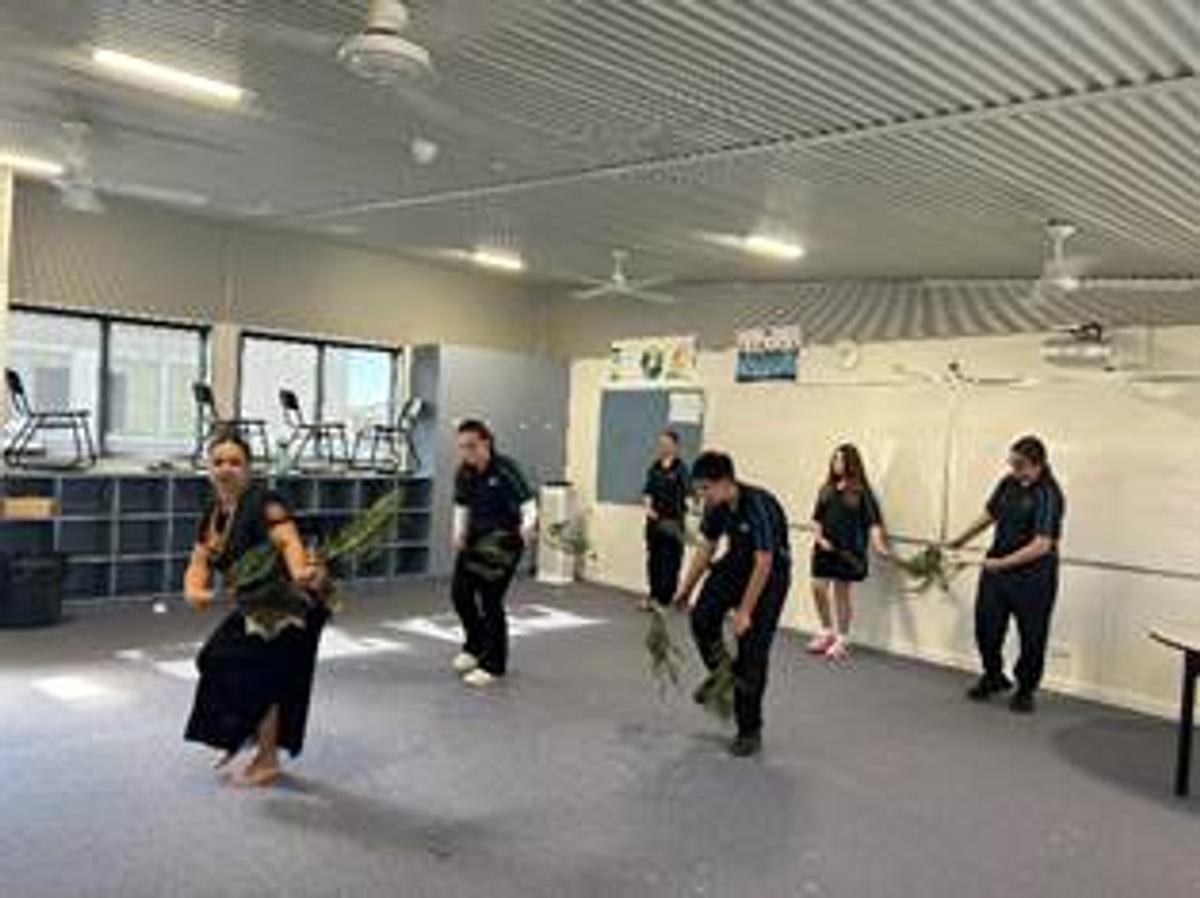

The Cultural and Community Engagement Team (CCET) has been actively involved in organising and supporting cultural performances featuring our South East Asian, African, and Pasifika students for Harmony Day. They are also collaborating with students from South East Asian, African, Afghan, and Pasifika backgrounds in preparation for the upcoming 4C’s performance, scheduled for September 16, 2025. In addition, CCET staff have been facilitating the Homework Club every Wednesday after school and are successfully running extracurricular programs including basketball on Tuesdays and badminton on Fridays, open to all students.
The Doctors in Schools Program continues to run every Thursday and remains a wonderful support service for students. A kind reminder that appointments can be made via the star icon on Compass.
Next term, we're excited to re-launch the Diversity Club and introduce a new lunchtime initiative — the BroCode Club, aimed at fostering positive peer connections and respectful relationships. We’ll also be delivering targeted psycho-education sessions for our Year 8 and Year 11 students around vaping, focusing on harm reduction and informed decision-making.
We’re also looking forward to celebrating NAIDOC Week early in Term 2 (official days are 6 - 13 July), recognising and honouring the history, culture, and achievements of Aboriginal and Torres Strait Islander peoples. Later in the year, we’ll mark R U OK? Day on the 11th of September, promoting meaningful conversations and mental health awareness across our school community.
After a long and often demanding school term, the winter holidays offer a valuable opportunity for students to recharge both physically and mentally. Self-care during this time is essential for maintaining overall well-being, preventing burnout, and preparing for the term ahead. The colder weather and reduced daylight can also impact mood and energy levels, making it even more important for students to prioritise rest, healthy routines, and activities that bring joy and connection. Whether it's getting enough sleep, spending time with family and friends, enjoying hobbies, or simply taking a break from academic pressures, self-care helps students return to school feeling refreshed, balanced, and ready to engage.
Here are the Wellbeing Team’s favourite self-care activities and might be something that you would also like to try these holidays;
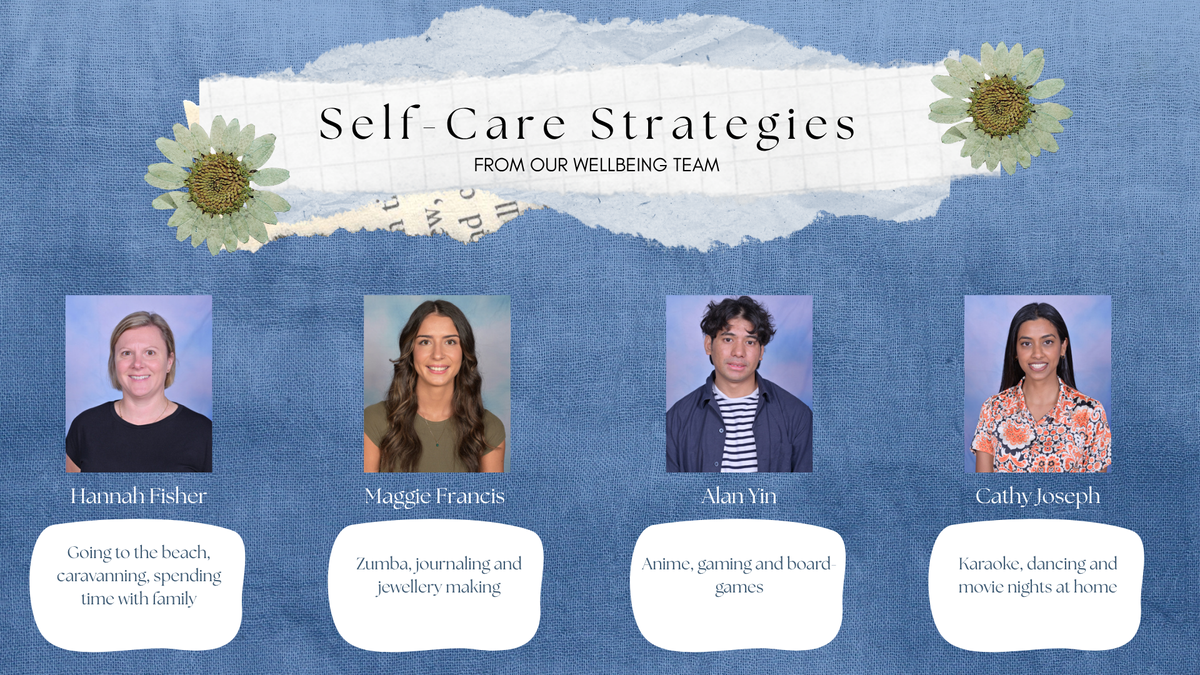
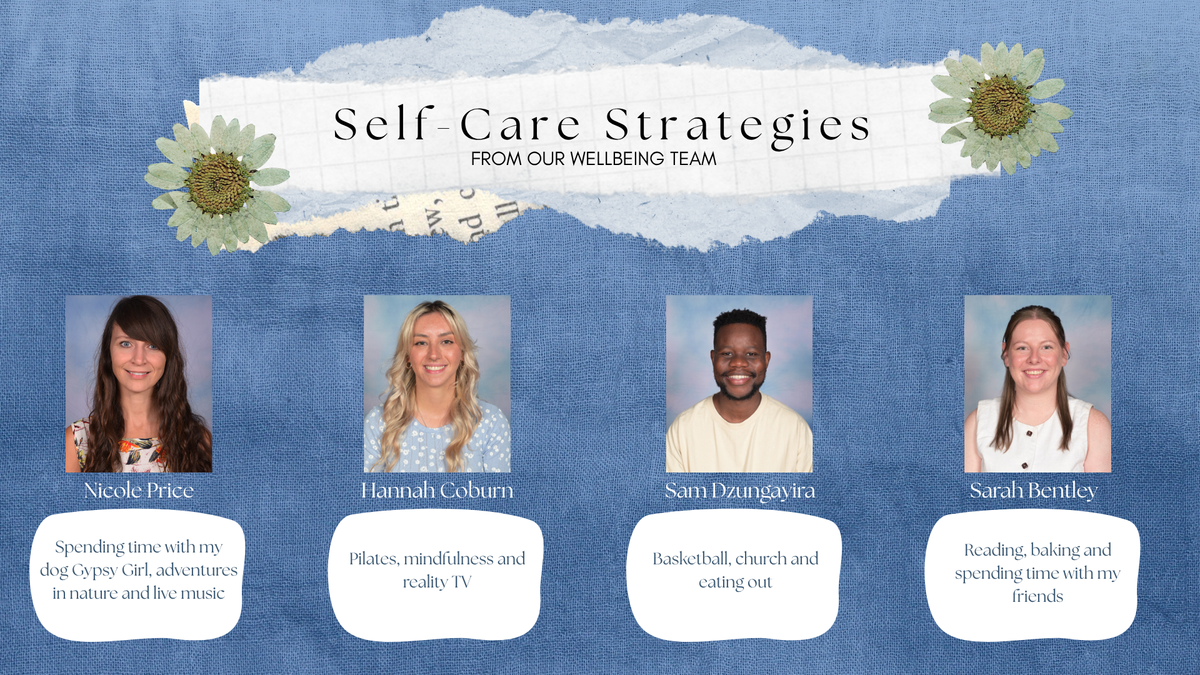


At Wellbeing, we love sharing good news stories; it's an instant mood booster and nice to celebrate successes collectively. We’d like to highlight a few good news stories below;
During Term 2 CESC introduced our first ever Koorie Captain, Emily Sinclair (yr 9).
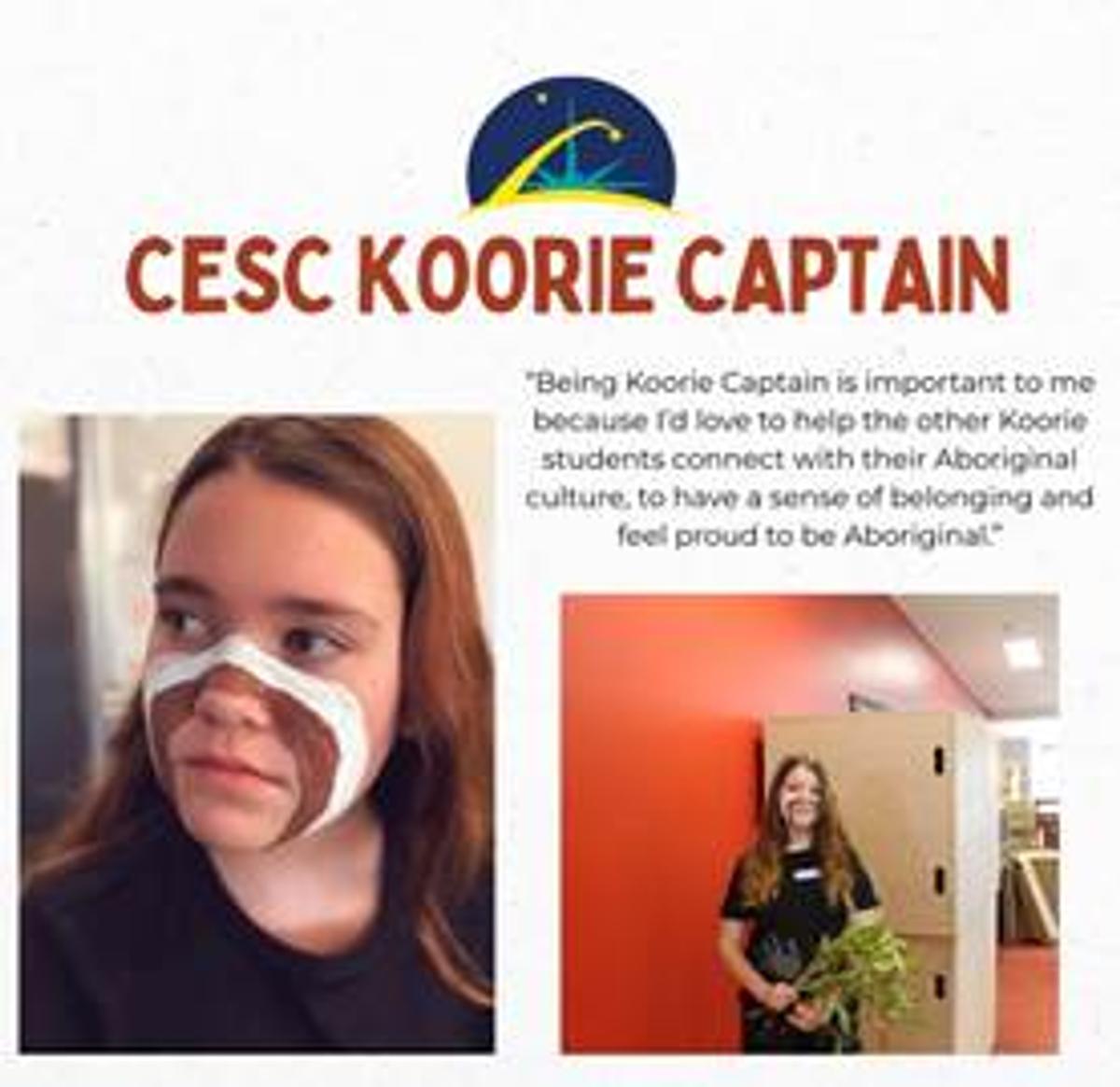

As Koorie Captain, Emily will be a positive role model and voice for Koorie students, take part in the CESC Reconciliation Action Plan Committee, deliver Acknowledgements of Country at school events and champion cultural initiatives through Student Council.
Emily worked with our Koorie Education Support Officer to personalise her Acknowledgement of Country for Harmony Day celebrations. This is a new and exciting space — we are so proud of Emily!
We also want to share the highlight of Daisy de Ross (yr 8) graduating from Myuna Farm, which is an external 8 week re-engagement program. Daisy’s reflection on the Program is below;
"The Myuna Farm program honestly meant a lot to me. It gave me something to wake up for, something to look forward too, especially on days where things felt heavy. It is hard to explain but being there made my mornings feel a bit brighter and meaningful. One of my favourite parts, was the animals. The baby lambs were so cute, the kind of cute that makes your heart melt. The guinea pigs were no tiny and soft, watching them chilled me out in the best way. It was calming in a way that I didn’t even realise I needed. It wasn’t one of those programs where you just sit around, we would be out and about doing cool staff and laughing most of the time. Whether we were working with animals, going on trips or just hanging out they made the whole thing welcome and fun. Looking back, I am honestly so grateful for Myuna – it helped me feel more grounded, gave me a routine and reminded me that small moments like feeding a lamb, laughing over uno or being around good people make a big a difference."
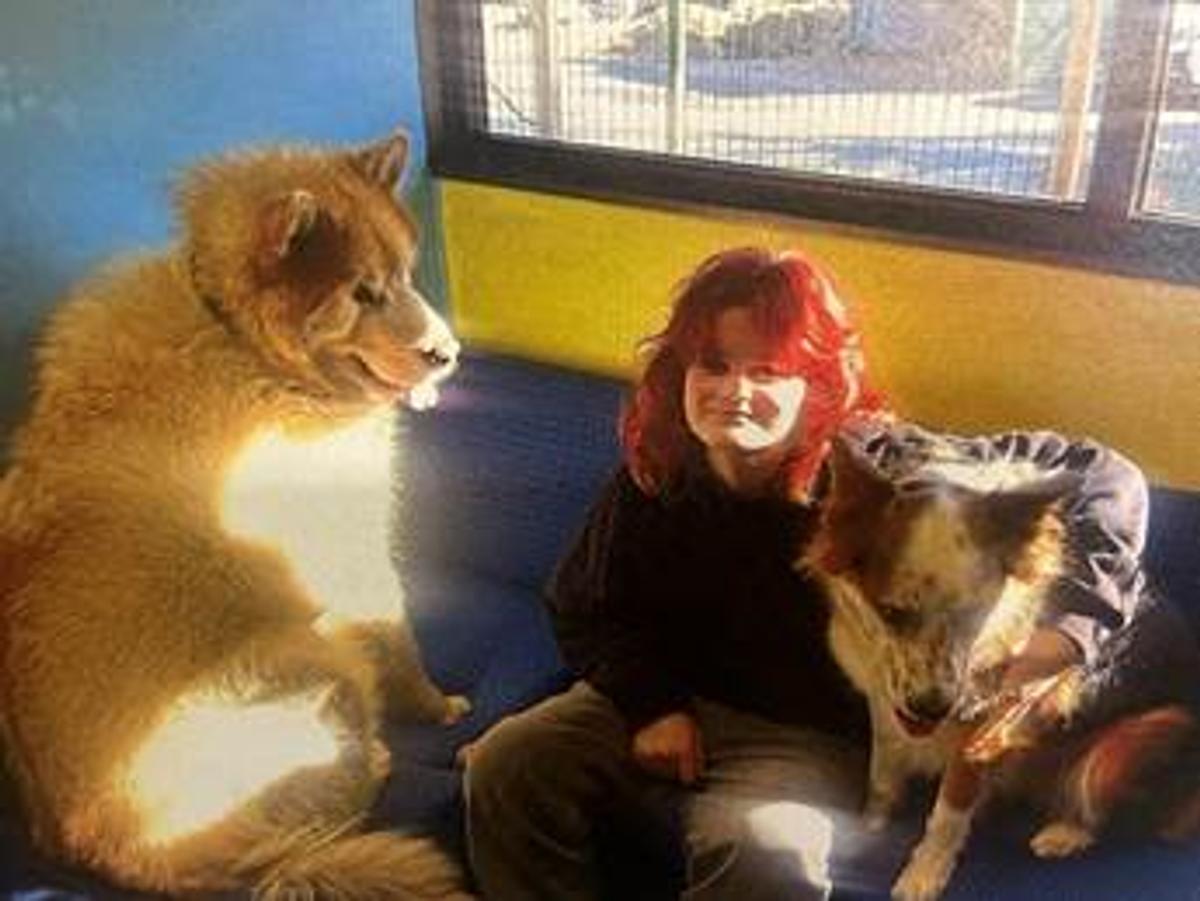

Finally, the Wellbeing Team would like to highlight support services that our Community can access through out the holidays. Have a lovely and restful break and we are looking forward to supporting the Community again in Term 3.
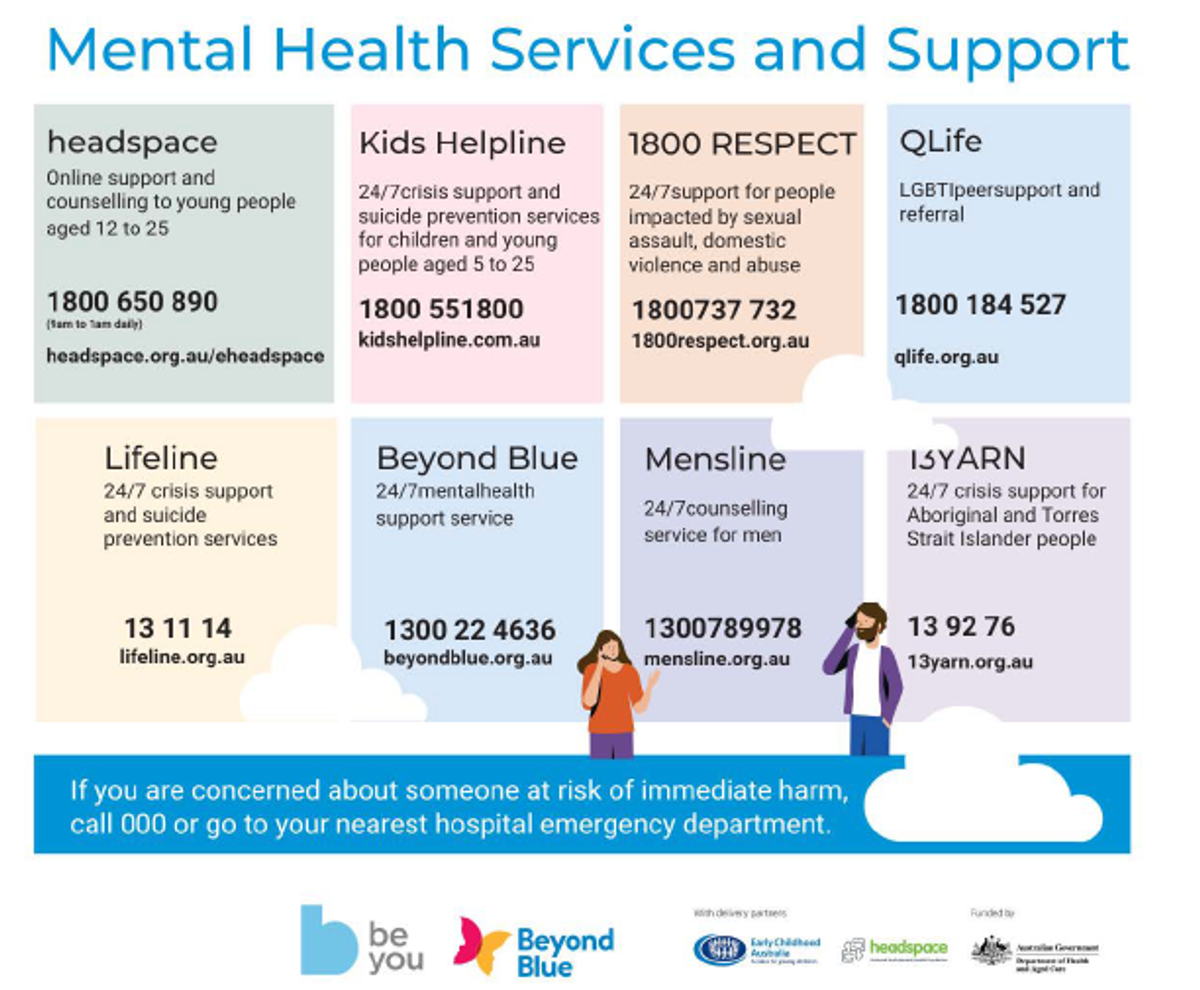

Winter Headaches
As winter settles in and Sickbay sees a rise in students reporting headaches, it’s important to remember that maintaining good hydration is essential for health—even in the colder months. While dehydration is often associated with hot weather, Australian government health advice makes it clear that children need to drink water regularly all year round, including winter. During colder weather, our natural thirst response is reduced, meaning students may not feel thirsty even as their bodies continue to lose water through breathing and indoor heating.
Healthdirect, a leading government health resource, specifically recommends that children drink water throughout the day regardless of the season, and that they should be encouraged to drink before, during, and after physical activity—even if they aren’t thirsty. The recommended daily intake for school-aged children ranges from four to eight cups, depending on age, and this should be increased if they are active or unwell. The Royal Children’s Hospital and Better Health Channel also highlight that water is the best drink for children, and sugary or acidic drinks should be avoided.
To help students stay hydrated, families can ensure children always have a water bottle at school and encourage regular sips, while teachers and staff can support this by encouraging students to keep water bottles at their desks as part of their ready-to-learn responsibilities. Government guidelines reinforce that promoting water intake is a simple, effective way to reduce headaches and support concentration, learning, and overall well-being in students. As a community, let’s prioritise hydration this winter—reminding everyone that drinking water is just as important now as it is in summer, and is one of our best tools for keeping students healthy, comfortable, and ready to learn.